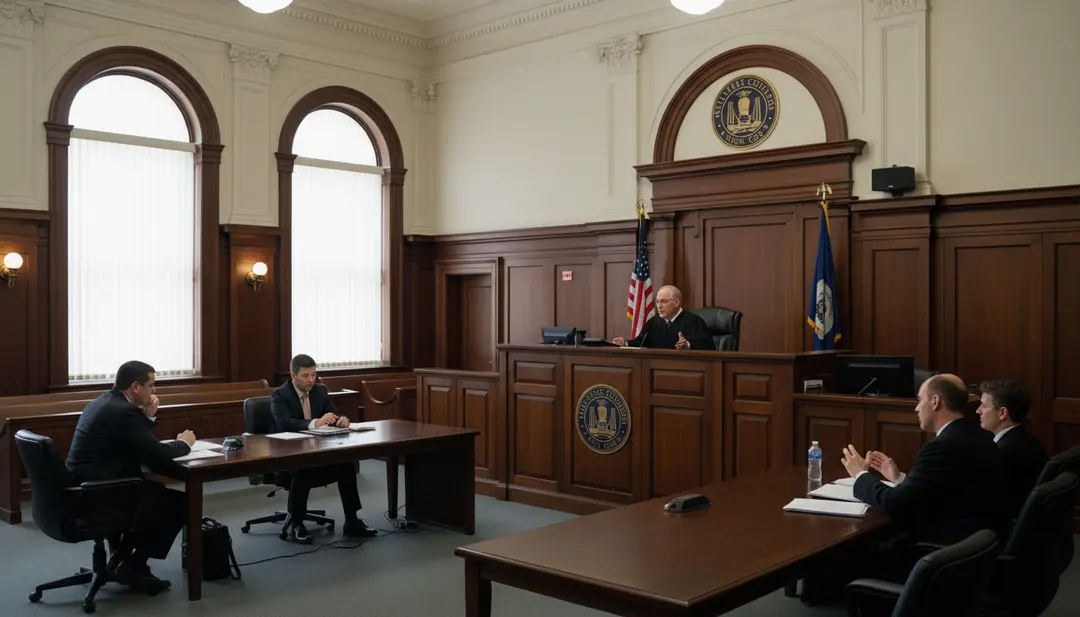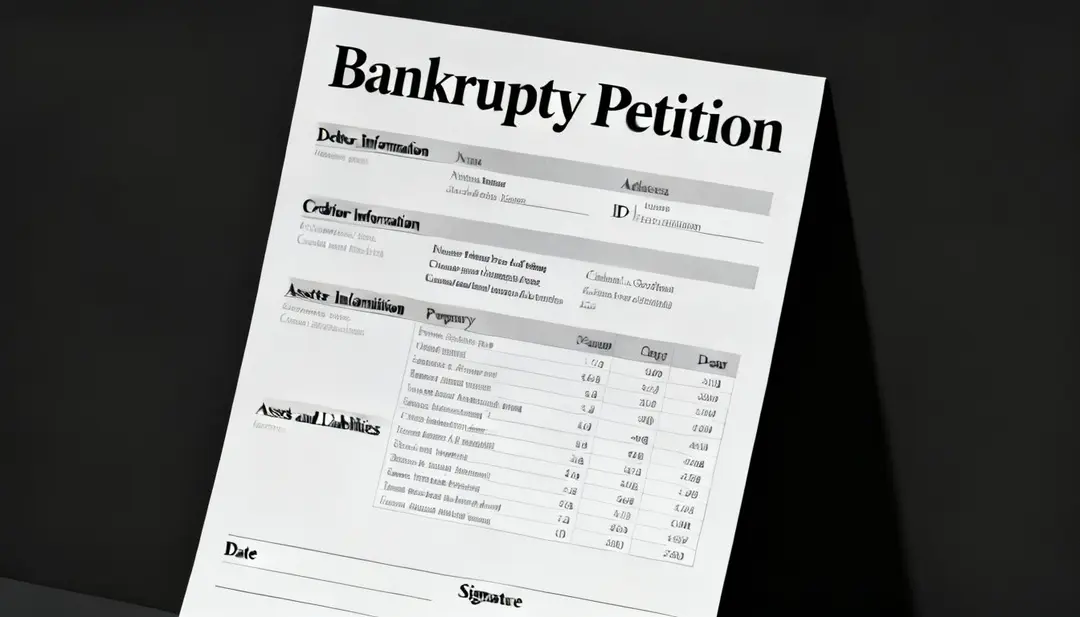Keeping your association’s official records up to date isn’t just a formality—it’s a legal responsibility. Whether you lead an HOA in Phoenix or a condo association in Tucson, Arizona law requires that governing boards submit Articles of Amendment or a Statement of Change to the Arizona Corporation Commission (ACC) any time there’s a change to your association’s name, registered agent, or other foundational details. Filing these updates as soon as changes occur helps protect your community’s legal standing and avoids potential headaches with state compliance.
Arizona communities rely on their records to support everything from vendor contracts to board leadership transitions. Working with an experienced Arizona HOA Attorney makes the process straightforward and keeps your association compliant. If you need support with documentation or want the peace of mind that comes from clear, accurate records, a Phoenix HOA Lawyer or Tucson HOA Attorney can guide you at every step. Find out how we help associations streamline governance and filings with our Association Governance Services.
Understanding Articles of Amendment and Statements of Change
When your HOA’s structure changes—whether it’s the association’s name, directors, or registered agent—the Arizona Corporation Commission requires you to file new paperwork that officially records those changes. Articles of Amendment and Statements of Change exist to make these updates legal. Knowing the differences and requirements helps your board stay compliant and responsive to state law.
What Are Articles of Amendment?
Articles of Amendment allow your HOA to formally change elements of its original formation documents. Most often, you’ll use this form if you need to:
- Update the legal name of the association
- Change the purposes or powers described when your entity was first filed
- Change the address of your principal office
- Amend any foundational provision in your Articles of Incorporation
This process is serious business for any board. Changes made through Articles of Amendment affect how your community operates and interacts with outside parties. Before filing, your board should review governing documents and consult legal counsel. An Arizona HOA Attorney can confirm you’re making changes that support your community and align with state law. Filing an amendment typically requires a board vote, proper meeting minutes, and sometimes a vote of the membership depending on your bylaws.
Even policies such as rental restrictions often require amendments. If your community is considering regulating short-term rentals, amending your CC&Rs may be necessary. To get a better sense of how amendments relate to rental rules, explore the HOA and Short-Term Rental Laws in Arizona.
What Is a Statement of Change?
Statements of Change are used for more routine, administrative adjustments. If your association updates its official address, changes its registered agent, or modifies the contact info listed with the state, a Statement of Change formally notifies the Arizona Corporation Commission. This way, all state records stay current, and your board meets its legal obligation to be reachable by government agencies and the public.
These updates are part of running a responsive and efficient HOA. Don’t let these “small” changes fall between the cracks—outdated information can delay legal notices or create confusion during board transitions. For board members in Phoenix or Tucson, a quick conversation with a trusted Phoenix HOA Lawyer or Tucson HOA Attorney can simplify the filing process and keep your operations streamlined.
When Arizona HOA laws shift, how your association manages these details may also change. Staying informed about governance requirements is key. For more about adapting to the state's evolving regulations, review the Arizona HOA governance guide.
Why Clear Documentation Matters
Filing these documents on time isn’t just about checking a box. Articles of Amendment and Statements of Change ensure that every critical update is reflected in your association’s legal records. Accurate filings:
- Protect your HOA from legal disputes
- Prevent lapses in insurance or vendor contracts
- Keep Board transitions smooth and predictable
- Help residents trust that the community is well-managed
At Halk, Oetinger, and Brown, our flat-rate general counsel services allow your board to get legal answers quickly—without the worry of unpredictable billing. Hundreds of Arizona communities rely on our team so they can focus on community priorities, not paperwork or compliance headaches. If you want legal clarity at a fixed cost, we are ready to help you protect your association’s interests.
Step-by-Step: Filing Articles of Amendment or a Statement of Change with the ACC
Board members in Arizona know that keeping corporate records current is a must—missing a step with the Arizona Corporation Commission (ACC) can stall business, slow down transactions, and open the door to compliance problems. The good news is, with the right process, you can handle these filings with confidence. Walk through the main steps below to keep your HOA or condo association’s information accurate and up to date.
Selecting and Downloading the Correct ACC Form
Before you begin making changes, make sure you’re using the correct ACC form for your situation. The Arizona Corporation Commission website lists a variety of forms. If you are updating your association’s name or articles, look for the “Articles of Amendment” form. For registered agent or address updates, use the “Statement of Change” specific to nonprofit corporations.
- Go to the ACC website: Set aside a few minutes to review the site’s “Forms” page under the Corporations section.
- Choose the form that matches your change: Double-check whether your HOA is a nonprofit entity, as this changes the form you need.
- Download the latest version: Forms can change with state requirements, so always use the current file to avoid rejection or delay.
Having the correct form is essential. It’s the difference between a smooth update and extra correspondence with the ACC.
Completing the Required Information Accurately
Next, gather your association information. The ACC requires details like your HOA’s legal name as filed with the agency. Enter this name exactly as it appears in their records. Even minor inconsistencies can result in paperwork being returned.
- List all updated information clearly: Whether you’re changing a director, officer, agent, or address, provide the new information in full.
- Check for accuracy: Mistakes cause delays and extra work. Make sure all names, addresses, and details align with prior filings and meeting minutes.
- Follow board authorizations: Important changes often require a board vote or even a general membership approval.
Paying attention to these details helps ensure compliance and protects against governance issues. If your change relates to financial oversight, explore the responsibilities outlined in the Comprehensive Arizona HOA reserve study.
Adding Attachments for Complex Changes
Some updates are simple; others require a supporting paper trail. If your association is changing its management structure, dissolving, or amending multiple foundational elements, be prepared to submit attachments.
- Common attachments include:
- Updated Articles of Incorporation or Bylaws
- Board meeting minutes showing approval
- Signed resolutions
- When to attach supporting documents:
- Changing the association’s name
- Modifying the purpose or powers of the community
- Amending voting or membership rights
Make sure these documents are clear and properly labeled. Organized submissions speed up processing and make next steps more predictable for your Arizona HOA Attorney, Phoenix HOA Lawyer, or Tucson HOA Attorney when you seek legal review.
Submitting and Paying Filing Fees
The final step is submitting your completed packet and paying required fees. The ACC offers online submission for most forms, but you can also file by mail if preferred. Always include payment (credit card for online filings or a check for mail submissions) to prevent delays.
- Submission tips:
- Double-check that all documents are signed and dated as required.
- Attach your check or prepare online payment at the time of filing.
- Save confirmation receipts and any correspondence related to your submission.
You can help your community avoid hiccups by consulting resources on accurate reporting requirements such as Guiding Arizona Homeowners Associations on Corporate Transparency. Attention to detail at this stage will benefit your board and homeowners alike, both now and as your community changes in the future.
After You File: Next Steps and Recordkeeping
Once you’ve submitted the Articles of Amendment or Statement of Change to the Arizona Corporation Commission, you’re not quite finished. Staying organized and proactive after filing is key to safeguarding your HOA’s legal standing and ensuring future board members can easily pick up where you left off. Think of recordkeeping as the safety net that backs up every decision you make—clear documentation limits confusion and potential disputes down the road.
Tracking Your Filing Confirmation
After the ACC receives your documents, you’ll get a confirmation—often in the form of a stamped, filed copy or an official acceptance letter. Save this immediately. These documents are your proof that the changes have been processed and legally recorded.
- Store all confirmations where they can be accessed by current and future board members.
- Make digital copies to avoid loss or misplacement.
- Update your association’s master records so your filings and corporate status always match.
Consider running an updated checklist each year to make sure all paperwork lines up with the actual operations of your community. If a question ever arises about the timing or substance of a filing, this record will be crucial.
Updating Association Records
Once your amendment or change is official, update all corresponding materials. That means everything from state and local business filings to your HOA’s internal records needs to reflect the new information. Make sure outgoing and incoming board members know where to find the latest versions.
Include these updates to maintain accuracy:
- Board rosters and contact lists
- Bylaws and meeting minutes
- Website and membership directories
Consistent records prevent setbacks and disagreements. When your records match what’s on file with the state, you maintain your HOA’s authority and build trust among members.
Retaining Key Documents
Organized records are the foundation of strong association management. Arizona law makes you responsible for keeping original and amended Articles of Incorporation, Statements of Change, and all supporting documents. This isn’t just a technicality—well-maintained files help with insurance claims, vendor disputes, and board transitions.
A simple but effective record retention system should cover:
- All filed amendments and correspondence with the ACC
- Supporting documents like board resolutions or meeting minutes
- Evidence of payment and submission (receipts, emails, confirmation letters)
To dig deeper into how long you should retain these and other records, explore the HOA Records Retention Guide. It breaks down which documents are required, who can access them, and how they protect your association.
Staying Compliant Year-Round
Your HOA’s responsibility doesn’t end at filing. Maintain compliance by reviewing procedures regularly. Assign specific board members to oversee filings and recordkeeping. Let your Arizona HOA Attorney, Phoenix HOA Lawyer, or Tucson HOA Attorney know about changes right away—they can help you avoid costly mistakes and clarify the best storage practices.
Reliable recordkeeping also improves your readiness for audits, annual meetings, and member requests. It clears the path toward transparency, helping foster trust in your community. If your board needs expert support to build or update your compliance program, our attorneys are here to help you implement clear, manageable processes that match Arizona’s latest standards.
To keep your association compliant beyond just filing, review practical steps in our Board Members' Guide to HOA Record Keeping. With the right approach, your community stays organized, confident, and ready for whatever comes next.
Common Mistakes and How to Avoid Them
Filing Articles of Amendment or a Statement of Change with the Arizona Corporation Commission sounds straightforward, but small missteps can create delays and compliance headaches for your HOA board. If you want to spare your community from backtracking, legal confusion, or even unwanted costs, it helps to know where boards most often slip up—and exactly what you can do to stay on track.
Missing Key Deadlines
One of the most frequent pitfalls is simply failing to file within the required timeframe after an association change. Whether you’ve updated your association’s address, elected new directors, or amended your governing documents, waiting too long to notify the ACC can put your legal standing at risk.
- Mark important filing dates on a shared calendar.
- Assign a specific board member to monitor compliance tasks.
- Plan for reminders at each annual meeting or leadership transition.
Board transitions often bring these deadlines into question, so build in redundancy. Encourage outgoing secretaries to brief new members on open compliance items.
Submitting Incomplete or Inaccurate Forms
A common headache is forms getting rejected due to missing signatures, outdated details, or minor clerical errors. When your documents come back, the process starts all over—costing time, attention, and sometimes, more fees.
To avoid these errors:
- Double-check that every required field matches current ACC records.
- Review meeting minutes and board resolutions to confirm accuracy.
- Confirm that every signature is in the right place and dates line up with recorded board decisions.
Well-prepared packets rarely face delays. Don’t let a rushed submittal set you back.
Overlooking Required Attachments
Some amendments, especially those changing the association’s name or membership structure, need supporting documents like updated bylaws, board resolutions, or member approval records. Failing to provide these will stall your filing.
Scan your bylaws and ACC instructions before submitting. If your change affects voting rights, membership obligations, or rental restrictions, legal review and extra documentation are usually needed. This is especially important if your community is working on rental policies—see more on amending rules in the context of Arizona HOA short term rental policies.
Confusing Articles of Amendment with a Statement of Change
Boards sometimes use the wrong form for the type of update they need to make. For example, using a Statement of Change for amendments that actually require the more detailed Articles of Amendment can result in filing rejection.
Clarify the scope of your update before you download and complete a form. A quick consultation with an Arizona HOA Attorney, Phoenix HOA Lawyer, or Tucson HOA Attorney keeps everything efficient. If your change is significant or alters the association’s foundational provisions, choose the comprehensive route.
Neglecting to Update Internal HOA Records
Some boards submit paperwork to the ACC and consider the job done, but neglect to update their internal files. This causes confusion during audits, elections, or vendor negotiations.
Always:
- Update digital and paper files with new articles or changes.
- Notify current and incoming board members of the update.
- Share the changes via meeting minutes or brief announcements.
Consistency avoids confusion when questions or challenges come up later.
Failing to Communicate Changes to the Community
Even when filings are perfect, failing to inform homeowners about amendments or official changes can lead to distrust, rumors, or challenges to the board’s actions. Keep your community in the loop through emails, newsletters, or community meetings.
If your association has struggled with compliance or resident understanding before, you might appreciate these tips for navigating HOA rules and regulations.
Skipping Legal Review
It may be tempting to save on legal costs by handling amendments in-house. However, even small errors can result in legal exposure or lost rights. Rely on an Arizona HOA Attorney, Phoenix HOA Lawyer, or Tucson HOA Attorney to review documents, clarify statutory obligations, and flag common issues—lowering risk and keeping your process clean.
At Halk, Oetinger, and Brown, we remove the guesswork. Our flat-rate general counsel model lets you ask questions and get review from experienced attorneys, without surprise costs. Hundreds of Arizona communities trust us to handle complex filings so boards can focus on serving their members.
Ignoring the Lessons from Previous Mistakes
When errors do occur, take time to review what went wrong and update your compliance processes. Open discussions and post-mortems after a filing misstep can strengthen your board’s approach. Use annual board transitions as an opportunity to refresh best practices.
To see which types of mistakes can escalate quickly and even lead to litigation, check this roundup of common causes of HOA litigation in Arizona.
With the right approach, even new board members can prevent repeat mistakes and keep your association on solid footing. Be thorough, share information, and don’t hesitate to use legal and compliance resources built to protect your community.
How Arizona HOA Attorneys Can Help
Filing Articles of Amendment or a Statement of Change may seem routine, but mistakes can create lasting ripple effects for your association. This is where an experienced Arizona HOA Attorney becomes your board's strongest ally. With a trusted legal partner, boards stop worrying about statutory missteps and can focus on running a smooth community. Let’s look at the practical ways legal counsel supports good governance, accurate filings, and peace of mind—so your community stands strong through every transition.
Translating Legal Requirements into Action
Arizona’s corporate statutes can be complex and often change. An HOA attorney breaks legal requirements down into clear steps, showing your board exactly what’s needed and when. No one has to guess about which form to file, which votes to record, or how meeting minutes should look. This is especially helpful when addressing nuanced issues like amending bylaws for rental rules or updating the association’s legal name. Attorneys also monitor evolving laws so your filings always meet current standards—a level of vigilance that shields against state penalties and community disputes.
Preparing and Reviewing Documents for Accuracy
Accurate paperwork is everything. A Phoenix HOA Lawyer or Tucson HOA Attorney reviews your draft forms, attachments, and supporting documents to confirm every detail matches ACC standards. They catch missing signatures or wording that may draw scrutiny. You get confidence that each submittal is thorough, from board resolutions to updated bylaws, before anything reaches the Arizona Corporation Commission. If your filing involves financial policy changes or special assessment clauses, legal review provides another layer of security.
Guiding Board Approval and Process
Significant changes—like amending articles or adopting a new registered agent—usually require a board vote or even member approval. An Arizona HOA Attorney advises your board on the right process, from meeting notice requirements to the approval thresholds set in community bylaws. Legal guidance keeps your vote results enforceable and your amendment safe from future challenges. Attorneys can even help draft clear, meeting-ready resolutions for your board packet.
Avoiding Filing Mistakes That Sabotage Compliance
Whether you’re managing a Phoenix high-rise or a Tucson planned community, small filing errors can hold up business. Attorneys check for common mistakes, such as confusing which form to use or leaving off attachments. By assisting with compliance workflows, attorneys help:
- Meet state deadlines
- Coordinate payment and submission steps
- Track and archive confirmation letters for long-term records
Having a legal partner lets you avoid repeat stumbles that cause confusion or legal trouble later. This reduces back-and-forth with the state and accelerates processing times.
Streamlining Assessment Collection and Financial Reporting
Beyond filing, strong legal counsel is key to smooth financial management. Attorneys can address assessment collections, advise on payment plans, and help draft collection policies that comply with state law. You can see how working with an experienced legal team accelerates assessment collections and enhances financial stability by visiting these strategies from an Arizona HOA lawyer.
Support Across Phoenix and Tucson Communities
Whether you need a Phoenix HOA Lawyer or a Tucson HOA Attorney, experienced counsel means you get local expertise with statewide reach. If you’re looking for leadership rooted in both major metro and local Arizona markets, visit the John Halk attorney profile for Phoenix or learn about Philip Brown - AZ HOA Law Partner in Tucson. Both attorneys bring years of hands-on knowledge to every HOA’s filings, ensuring board actions stay valid and defensible.
The Value of Fixed-Fee Support
One of the best parts of working with Halk, Oetinger, and Brown is budget clarity. With flat-rate general counsel, your board can ask questions, get document reviews, and process filings without unpredictable invoices. This transparency encourages boards to seek legal answers early before mistakes grow, minimizing both legal costs and board stress.
Expert legal support transforms HOA compliance from a guessing game to a reliable, repeatable process. An Arizona HOA Attorney makes sure your filings protect your community today and build a strong foundation for the future.
Conclusion
Filing Articles of Amendment or a Statement of Change is a key step to safeguarding your association’s legal health and day-to-day operations. Accurate filings, strong recordkeeping, and prompt updates build a foundation of trust and prevent avoidable disputes down the road. By keeping up with these legal requirements, you protect your HOA’s authority, keep vendor contracts running smoothly, and show your community that their interests matter.
When the details get tough or a change involves more than simple administration, working with an Arizona HOA Attorney helps you avoid setbacks. At Halk, Oetinger, and Brown, you get flat-rate general counsel, fast answers, and reliable expertise—so your HOA board can focus on serving residents. Hundreds of Arizona communities choose us for clear guidance across governance, assessment collections, and litigation. Explore how our team can make compliance simple and predictable by visiting About Azhoa Law.
Keep your records current, your process efficient, and your community strong. If you have questions or want support for your next filing, our experienced attorneys are ready to help you move forward with confidence.


![How to File Articles of Amendment or Statement of Change in Arizona: HOA Compliance Guide [2025]](https://cdn.prod.website-files.com/66b97099f8f1d06c15fb6dbe/68bf068386e3642f126963c9_signed-articles-of-amendment-document-desk.jpg)










